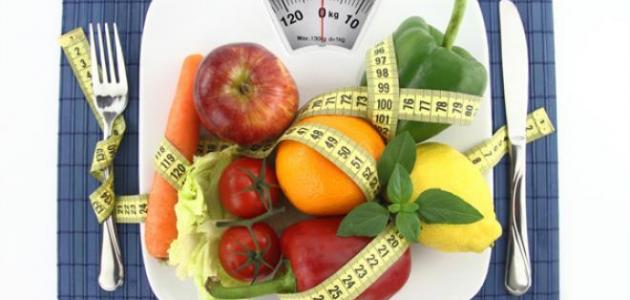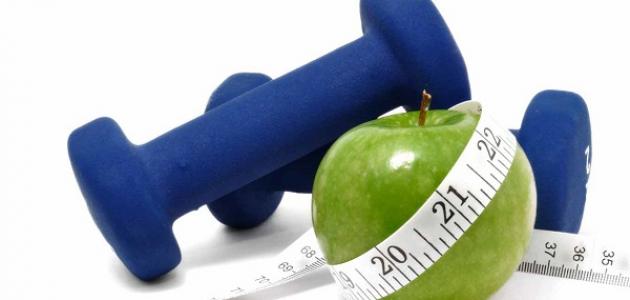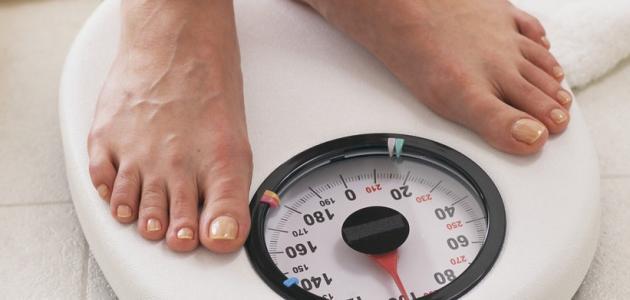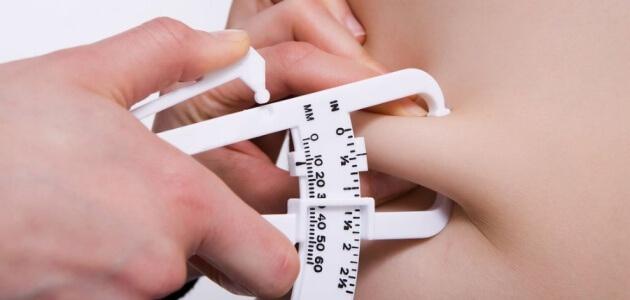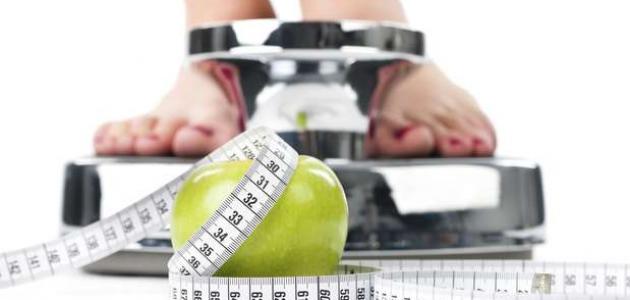Overweight and obesity
According to the World Health Organization, overweight and obesity are defined as the accumulation of fat in an abnormal or excessive way that can harm health, as obesity can increase the risk of developing many serious health conditions, such as: type XNUMX diabetes and coronary heart disease, so it is It is very necessary to take serious steps to get rid of this problem. Body mass index (BMI) is commonly used to classify adult weight in the range of normal weight, overweight, or obesity, and it can be calculated by dividing a person's weight in kilograms by the square of his height in meters (kg/m).2), and the World Health Organization has shown that weight gain for adults is when a body mass index reaches 25 or more, while the obesity range begins when a body mass index reaches 30 or more. It is worth mentioning
Weight that can be lost in a month
It is natural for anyone trying to lose weight to want this to happen very quickly, but people who lose weight gradually and steadily are more successful in maintaining the stability of weight after losing it, and the normal rate of weight loss ranges between 0.5 to one kilogram every week, so the average weight loss A normal and healthy weight ranges between 2 to 4 kilograms per month, and it should be noted that healthy weight loss is not only related to a diet or program, but rather to a continuous lifestyle that includes long-term changes in eating habits, exercise, and daily activity.
Read also:How to strengthen the bodyIn general, the principle of weight loss depends on consuming fewer calories than the amount that the body burns, and in this case the body resorts to burning stored fats to obtain energy, and half a kilogram of body weight is equivalent to 3500 calories, so losing half a kilogram per week needs to reduce about 500 to 1000 calories daily consumption, and it should be noted that many other factors may affect weight loss, when trying to lose weight you must follow a good plan to improve eating habits, increase the level of physical activity, and exercise, which helps to lose weight and maintain On its stability, in order to enjoy better health, and not for a temporary goal, such as wearing smaller clothes, or looking good at an event.
Diet for weight loss
The body's need for calories
The amount of energy the body needs depends on several factors, including: age, level of physical activity, how efficient the body is in using energy, gender, size, height, lifestyle, general health, level of physical activity and other factors. Everyone has calories different from others, but in general, experts estimate the average daily calorie need for healthy adults at 1600-2400 calories for women, and 2000-3000 calories for men.
Read also:How do I lose weight without dietingAs mentioned previously, the body needs to burn 3500 calories to lose half a kilogram of weight, so reducing approximately 500-1000 calories per day from the usual diet leads to losing about 0.5-1 kilograms per week, and as we mentioned earlier; The calories that must be consumed to lose weight may differ from one person to another, so it is preferable to calculate the required calorie rate more accurately depending on gender, age, and level of physical activity, and the rate of burning and metabolism differs from one person to another even if the two people are of the same sex, And of equal size and girth.
An example of a weight loss diet
There is no single diet that suits everyone to lose weight, and in general it is preferable that the diet include a variety of foods from all the major food groups; Where a healthy diet includes: vegetables, fruits, whole grains, low-fat dairy products, lean sources of protein, nuts and seeds.
Below we mention two examples of one-day weight loss diets, one of which provides the body with 1500 calories,[XNUMX] The other provides 1700 calories:
| the meal | 1500 calorie diet | 1700 calorie diet |
|---|---|---|
| Breakfast | A cup of low-fat milk without sugar, a boiled egg, a loaf of bread, an orange, and 8 black olives | A cup of low-fat milk, 60 grams of feta cheese, a cup of beans with a teaspoon of olive oil, half a large loaf of brown or white bread, a small banana |
| the lunch | A cup of low-fat milk, 90 grams of grilled, boiled or cooked chicken without skin, two-thirds of a cup (or 6-8 tablespoons) of rice, a cup of vegetables cooked without oil, a cup of green salad with lemon juice, a teaspoon of oil for cooking, or olive oil for salad, mayonnaise, XNUMX pear or XNUMX thin slices of watermelon | A cup of low-fat milk, 90 grams of grilled or boiled chicken without skin, a cup (or 9-12 tablespoons) of rice, a cup of cooked vegetables without oil, a cup of green salad with lemon juice, a teaspoon of oil for cooking, or olive oil for salad Or mayonnaise, a peach. |
| Isha | A cup of low-fat yogurt, 60 grams of minced meat without fat, a cup (or 6-8 tablespoons) of pasta, a slice of melon, a cup of green salad with lemon juice | A cup of low-fat yogurt, two slices of low-fat cheese, half a large loaf of brown or white bread, 12 cherries, and a cup of vegetables cooked without oil. |
Read also:The best ways to stabilize weight after dieting
Tips for losing excess weight
It is worth noting that there is no one-size-fits-all solution for losing weight and maintaining its stability in a healthy way. What works for a specific person may not suit others, because bodies respond differently to different foods, depending on genetic influence and other health factors, so finding a way The appropriate way to lose weight for each person may take some time, and requires patience, commitment, and experimenting with different foods and diets, and the following points show some tips for losing excess weight:
- Cut down on added sugars: Such as the sugars found in cakes, sweetened biscuits, sugar-sweetened drinks, and other foods that do not contain sugar naturally, as they contain high calories, and few nutrients beneficial to the body, so it is recommended to limit the consumption of daily calories coming from added sugars by a percentage Less than 10% of total daily calorie intake.
- Choosing the right quality and quantity of carbohydrates: It is recommended to choose carbohydrate sources with a low glycemic index, as asparagus, for example, has a lower glycemic index than potatoes, in addition to choosing food sources that contain a smaller amount of carbohydrates per serving, and it is also recommended to choose whole grain sources instead of refined grains. They undergo processing that removes most of the beneficial nutrients such as fiber, iron, and B vitamins.
- Increase protein consumption: Protein can help reduce appetite, which may reduce a person's desire to eat and reduce the amount of calories consumed. The concentration of the hunger hormone known as the hormone ghrelin after eating is greater than eating a carbohydrate-rich breakfast, which is the hormone responsible for stimulating the feeling of hunger, and eating protein during breakfast helped reduce the rate of emptying the stomach of food.
- Increase your fiber consumption: A study of healthy men published in The American Journal of Clinical Nutrition in 2007 indicated that consuming 33 grams of insoluble fiber helped reduce appetite, food consumption, and glycemic response after 75 days. minutes of consumption, so it is recommended to start the meal with salad or vegetable soup to enhance the feeling of satiety, and reduce the amount of food eaten.
- Getting enough sleep at night: Lack of sleep can lead to an increase in the production of the hormones insulin and cortisol, which leads to increased storage of fat. Hormonal, which may lead to an increase in calorie consumption and a decrease in energy expenditure, which ultimately causes weight gain.
- Plan meals and snacks in advance: Eating according to a specific schedule helps to avoid eating when you don't really feel hungry.
- Drink enough water: Water is necessary for the process of converting stored fats into energy, and it is also a natural appetite suppressant. Just 1% leads to a significant decrease in metabolism. A study published in the Journal of Clinical and Diagnostic Research in 2013, which included 50 overweight people, indicated that drinking half a liter of water three times a day half an hour before eating main meals helped to lose weight and reduce body mass index. and improving body composition.
- It is worth noting that it may sometimes be difficult for the body to distinguish between feeling hungry and thirsty, so a person may be dehydrated when feeling lightly hungry, and in this case it is recommended to drink a glass of water instead of eating a snack.
- Do resistance exercises: These exercises help build muscle, which may increase the body's metabolism rate, because muscle mass has a higher metabolism rate than fat, which means that muscle mass needs more energy to be maintained by the body.
- Aerobic exercise: Also called cardio exercises, which is an excellent way to burn calories and improve physical and mental health, it can also be useful for losing belly fat, which is the unhealthy fat that tends to accumulate around the organs, and the accumulation of this fat may increase the risk of Diseases and metabolic problems.
- stress relief: Stress affects the level of hormones, and it can increase the body's production of cortisol at a higher rate than normal, a hormone that helps regulate appetite. A study published in the journal Current Obesity Reports in 2018 indicated that high levels of cortisol can lead to increased appetite, preference for Foods rich in calories, and cause a redistribution of adipose tissue around the abdominal area, which may eventually lead to abdominal obesity.
- Eat slowly Eating quickly can lead to weight gain over time, while eating slowly helps you feel full and boosts the level of hormones associated with weight loss.
